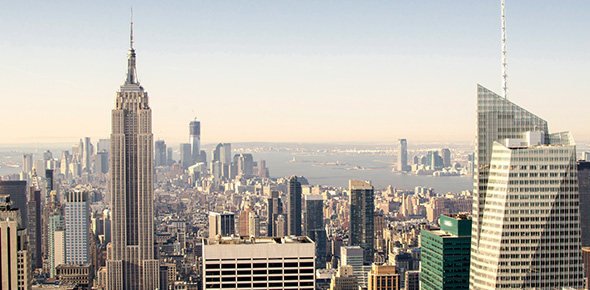Related Flashcards
Related Topics
Cards In This Set
| Front | Back |
|
Abbas (Shah)
|
· One of the greatest Safavid kings of all time (his rule marked the cultural apogee of Safavid rule)
· Routine-ization of authority (took away charismatic authorization and made it stable) · Like the Ottomans, supplemented the army with a slave army of Ulams (Ghulam Infantry, which used muskets) · Theological revolution during his time (Safavids persecuted and suppressed Sufi orders so other religious figures wouldn’t try to assert authority) |
|
Abbasids
|
· Golden Age of Islam
· Capital in Baghdad · Able to rule centrally for first couple centuries but then there was more rule out of Baghdad and principalities started to rule “in the name of Allah” under the Caliphate · Knew it was important to have a Turkish-speaking clave army from Central Asia (this army was based in Samarra) · Allowed for the popularization and spread of Mu’tazila (“those who separate themselves) |
|
Akbar
|
· Had a court that attracted Europeans and Jesuits
· Time of extraordinary excess in Europe so European merchants would try to buy them and then bring them there to sell |
|
Ali ibn Abi Talib
|
· First supporter of Muhammad
· Muhammad’s cousin and son-in-law · Fourth of Rashidun · Shi’ites were his supporters (significance for Shi’as) |
|
aniconism
|
· Muslim conscious choice not to use images (both in the Koran and in mosques)
· Invites you to get in the mode of thinking about the divine · Replaced with plant and vegetal motifs |
|
Arabesque
|
· Plant motifs that are elaborate and look to be growing on trellises
· Motifs that fill in the geometric shapes · Encourages people to think and contemplate |
|
Ardabil
|
· Home of dynastic shrine that Shah Abbas substantially endowed during his pilgrimage (Abbas used charitable endowments as a political instrument to shore up his main claims to legitimacy)
· When Abbas restored the shrine here, he was strengthening his family line · Bequests included household estates and personal property (jewelry, weapons, horses, sheep, goats) |
|
Ayatollah Khomeini
|
· Developed from Twelver Shi’ism and was the pinnacle of the hierarchy of interpreters of the sharia
· Leader of the 1979 Iranian Revolution · After the revolution the number of people calling themselves ayatollah increased so much that the title “ayatollah al-uzma” (the greatest sign of God) had to be created |
|
Babur
|
· Founder of the Mughal dynasty (Zahir al-Din Muhammad)
· Caghatay Turk descended on his father’s side from Timur and on his mother’s side from Genghis Khan · Nickname “Babur” derived from the Indo - Persian word for “beaver” · Kept a diary that he started to turn into an autobiography (until recent times only the true autobiography in Islamic literature) · Couldn’t gain a foothold in Central Asia so instead looked at India and Afghanistan · His earlierst construction was a garden in Kabul, Afghanistan |
|
Bahri Mamluks
|
· Sea: on Nile
· One of the two lines of mamluks · Turks from Southern Russia · Descendants of Qalawun |
|
Baraka
|
· Sufis believed that there were some particularly pious people (God’s friends) who developed a close and personal relationship with God
· Blessing/spiritual electricity (also, extraordinary power) · Demonstrates a Saint’s closeness to God which permits him to perform miracles like healing, reviving the dead, and flying · Power does not diminish after death so Sufis venerate the living and the dead saints · Sufi movement towards the inward approach to belief was originally a private thing but then it turned into a more social force |
|
Bazaar
|
· Marketplace for trade
· Essential for concentrated marketing and production of Safavids · Taxed by the state · In Isfahan, was extended by Shah Abbas and connects Masjid-i-juma to the royal square |
|
Burji Mamluks
|
· Ruled from citadel East of Cairo
· Circassians from N. Caucasus · Burji means “of the tower” |
|
caliph/khalifa
|
· Replaced by sultans (under Seljuks)
· Post-caliphate: religious authority separates from political authority and city was a cultural center · Successor of the prophet (leading community both religiously and politically) · Localized rule, claimed to rule “in the name of Allah” · First system of government established in Islam · Rulers were called this beginning in the Umayyad empire · Everything was done in the name of the Caliph · Perpetuated messages of Muhammad and the order of civilization through their leadership |
|
caravanserai
|
· Medieval Islamic times: enormous growth of caravan cities
· Rulers would build caravanserais to protect merchants and encourage trade · Medieval equivalent of motels for commercial travelers (spaced along major routes a day’s journey apart) · Typical one was located near a permanent source of water and was a walled building with a single entrance big enough to fit animals · Layout: first floor had stables and rooms for storing goods, upstairs were beds for merchants and caravaneers · Generally at the center of the market and functioned as a wholesale market |






